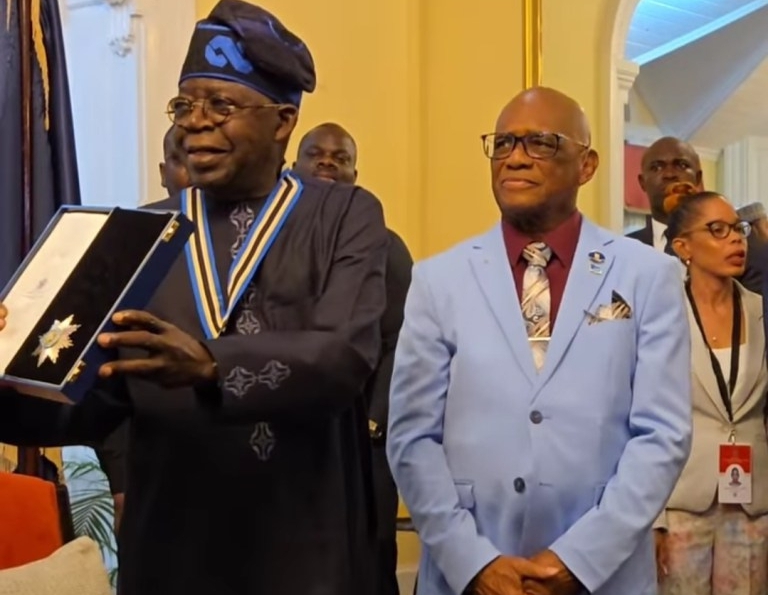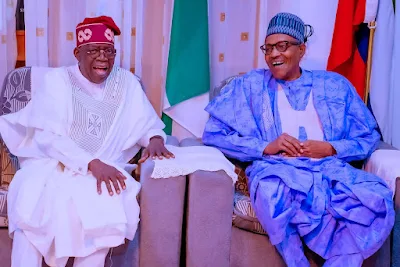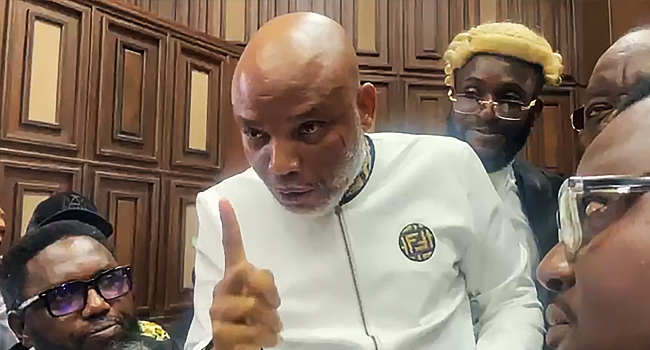Featured
Shadow government exposes APC failure, vows national rescue
DDM News

A new political initiative has been unveiled to challenge Nigeria’s deepening governance crisis and rekindle hope for democratic accountability.
This initiative comes at a time when many Nigerians are increasingly frustrated with the direction of the country.
The development is spearheaded by a coalition of reform-minded political actors and civil society groups determined to change the national narrative.
The Big Tent Coalition, led by renowned political economist Prof. Pat Utomi, officially launched its Shadow Government during a landmark event.
The event was aimed at offering credible policy alternatives to the ruling All Progressives Congress (APC).
The APC, which currently holds power at the federal level, has been widely criticized for its handling of economic and security issues.
Diaspora Digital Media (DDM), reporting from the event, notes that the shadow initiative is seen as a crucial turning point in Nigeria’s political history.
The emergence of the Shadow Government comes amid heightened public disillusionment with the current administration.
That disillusionment is rooted in a growing perception of failure to deliver on key campaign promises made by the ruling party.
This sense of failure is especially acute in areas such as job creation, inflation control, anti-corruption, and public safety.
The Shadow Government’s formation is seen as a strategic effort to rebuild trust in governance through transparency and performance benchmarking.
The Convener of Due Process Integrity Vanguard, Mr. Akor Christian Oche, a human rights activist and presenter of COPDEM People’s Parliament, also endorsed this movement.
He did so via his official X handle, @DueProcessWorld, where he shared his belief that the move marks a defining moment for the nation’s democratic direction.
Oche praised the Shadow Government for offering citizens a platform to engage with governance issues beyond party politics.
He described the launch as a breath of fresh air and a potential antidote to the political apathy afflicting millions of Nigerians.
In his keynote address titled A Shadow Alternative to Deepen Democracy, Prof. Utomi expressed grave concern over the spate of political defections to the APC.
He described these defections as a worrying sign of democratic erosion.
According to Utomi, many of these defections are motivated by the desire to escape prosecution for corruption-related offenses.
He argued that this trend undermines the moral fabric of Nigeria’s democracy and subverts the will of the people.
He further stated that the culture of impunity, fostered by these political maneuvers, weakens democratic institutions.
He said the Shadow Government is formed from several opposition groups and supported by cohorts of Nigerians both at home and abroad.
These diverse groups have come together to chart a new course for national development through ethical leadership and strategic vision.
Utomi emphasized that the coalition is not merely political but represents a values-based movement grounded in public service and integrity.
He added that the movement draws strength from Nigeria’s vibrant diaspora and domestic civil society networks.
According to Utomi, the official portal for the movement, thenewtribe.ng, was launched on May 1, 2024.
He noted that the portal provides access to policy blueprints, volunteer opportunities, and engagement forums for Nigerians everywhere.
The movement’s initial activities are focused on healthcare, education, infrastructure, and security reforms.
These sectors, Utomi explained, are fundamental to any serious attempt at national transformation.
He said the coalition has already developed and submitted actionable recommendations in each of these key areas.
Utomi criticized the APC-led government for allowing propaganda to replace genuine policy debate.
He likened this troubling development to the strategies employed by historical fascist regimes that suppressed dissent and manipulated public opinion.
He cited the recent exits of multinational firms such as Procter & Gamble and Diageo from Nigeria as indicators of a declining investment climate.
According to him, these companies left due to poor economic management and inconsistent regulatory policies.
Their departure, he said, has not only reduced foreign direct investment but also worsened the country’s unemployment crisis.
He further argued that Nigeria’s economic regression is typified by extravagant government spending on non-essentials.
He gave examples, including the recent purchase of new presidential jets and luxury vehicles for public officials.
Meanwhile, ordinary citizens, he said, are facing hunger, joblessness, and an ever-increasing cost of living.
Utomi called for an urgent return to fiscal responsibility and people-centered governance.
Referencing Mahathir Mohammed’s leadership during the 1997 Asian Financial Crisis, Utomi urged the Nigerian government to adopt smarter economic strategies.
These strategies, he suggested, must be tailored to Nigeria’s unique factor endowments and industrial potential.
He said the country needs a deliberate industrial policy that leverages its youthful population and abundant natural resources.
On the issue of national security, Utomi condemned the federal government’s ineffective response to terror attacks and communal violence in places like Benue and Plateau States.
He decried the failure of central policing to adequately protect lives and property across the country.
Utomi advocated for a decentralized policing system that empowers local communities with well-trained and well-equipped armed forces.
He proposed a three-tier security structure consisting of local security outfits, state police forces, and a coordinated federal national guard.
This model, he argued, would be more responsive to local realities and enhance national unity through shared responsibility.
Ethical governance also formed a major part of Utomi’s remarks.
He announced the establishment of a Good Governance portfolio within the Shadow Government.
This portfolio, he revealed, would be headed by veteran rights advocate and political analyst Dele Farotimi.
In addition, a Policy Delivery Unit has been set up to track and evaluate implementation benchmarks.
The unit features notable professionals such as Oghene Momoh, Cheta Nwanze, and Halima Ahmed.
Utomi stressed that the quality of personnel selected reflects the seriousness and credibility of the shadow initiative.
He further listed several members of the Shadow Cabinet.
These include Dr. Adefolusade Adebayo, Prof. Ukachukwu Awuzie, and frontline activist Aisha Yusuf.
Each member, he said, brings decades of experience and unimpeachable integrity to the table.
In conclusion, Utomi emphasized the need for civility in public discourse and the pursuit of a developmental state.
He urged Nigerians to avoid divisive rhetoric and instead embrace a culture of constructive dialogue.
He referenced statistics from the African Development Bank, noting that Nigeria’s current GDP per capita is lower than it was at independence.
This sobering fact, he said, should compel leaders and citizens alike to rethink their priorities.
He charged the Shadow Government to stay focused, remain ethical, and work tirelessly to restore dignity, prosperity, and hope for all Nigerians.
He said the coalition must resist the temptation to imitate the corrupt practices of the ruling elite.
Instead, they must remain committed to the ideals of transparency, equity, and service to the people.
Utomi’s powerful message resonated deeply with attendees at the event.
Observers believe the launch of the Shadow Government marks the beginning of a new chapter in Nigeria’s democratic journey.
They say it could provide the necessary intellectual and moral counterbalance to a political landscape that has become increasingly transactional.
With sustained citizen engagement and strategic policy advocacy, the initiative may well redefine governance in Nigeria.
Only time will tell whether this bold experiment can gain traction and deliver lasting impact.
But for now, it has succeeded in igniting hope and opening new possibilities for democratic renewal.
For Diaspora Digital Media Updates click on Whatsapp, or Telegram. For eyewitness accounts/ reports/ articles, write to: citizenreports@diasporadigitalmedia.com. Follow us on X (Fomerly Twitter) or Facebook












